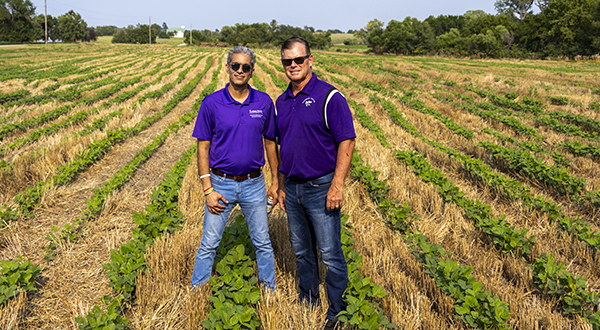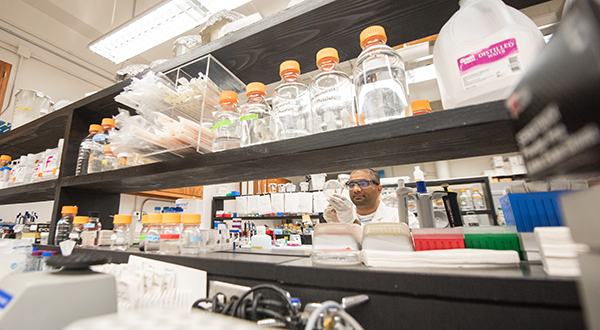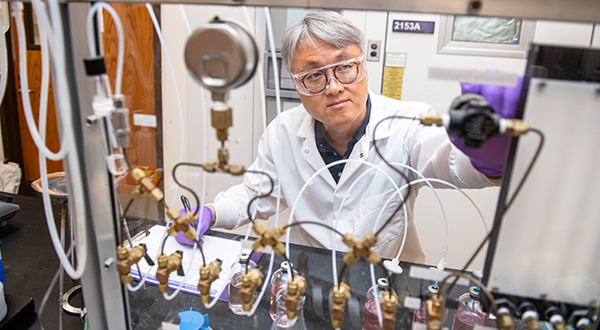University Outstanding Scholars
Inaugural University Outstanding Scholar cohort is future of research, teaching and service
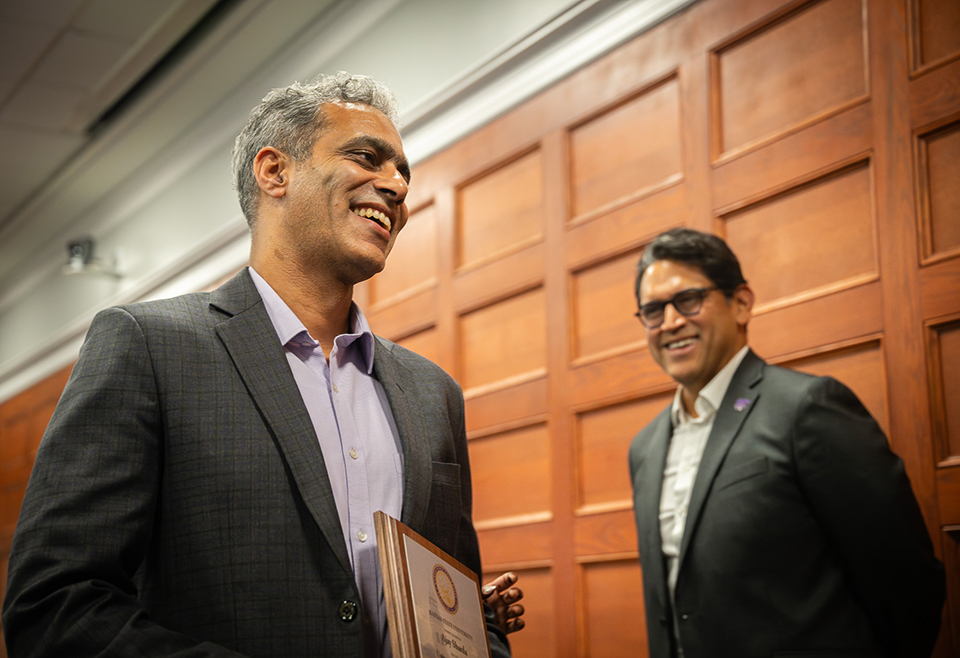 Ajay Sharda, associate professor of biological and agricultural engineering, receives his award at the University Outstanding Scholars ceremony in October 2024.
Ajay Sharda, associate professor of biological and agricultural engineering, receives his award at the University Outstanding Scholars ceremony in October 2024.
 By Emily Boragine
By Emily Boragine
K‑State News and Communications Services
Wednesday, Dec. 18, 2024
MANHATTAN — Kansas State University has taken a significant step forward in recognizing academic excellence with the launch of its University Outstanding Scholar Awards program.
Introduced in the spring of 2024 as part of the Next-Gen K-State initiative, this prestigious award honors exceptional mid-career tenured faculty members who demonstrate extraordinary potential for academic distinction.
The program underscores K-State's commitment to fostering a talented workforce, advancing groundbreaking research and enhancing academic excellence. This inaugural cohort represents the university’s diverse academic strengths, spanning critical fields from veterinary medicine and plant pathology to electrical engineering and agriculture.
Each University Outstanding Scholar receives a $10,000 base salary increase and will retain the distinguished title permanently, recognizing their exceptional contributions to academic research, teaching and service.
Raghavendra Amachawadi
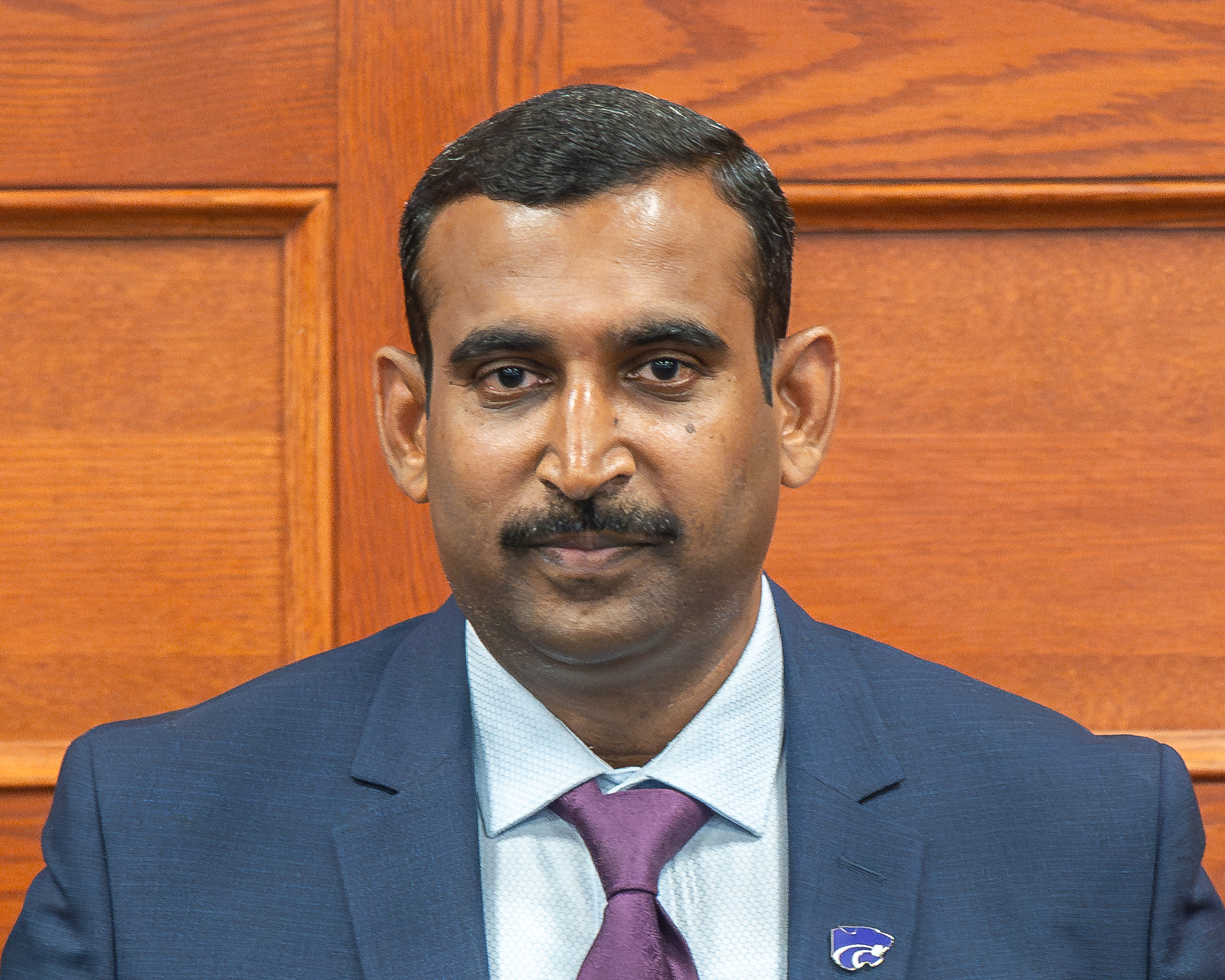
Raghavendra Amachawadi, associate professor of clinical sciences in the College of Veterinary Medicine, is a leader in the fight against antimicrobial resistance.
His research focuses on developing alternative therapies to antibiotics in livestock, particularly cattle, and improving antimicrobial stewardship to mitigate resistance risks in animal and human populations. With more than $7.5 million in secured funding, Amachawadi's impact extends beyond research to teaching and service.
He has been recognized with the 2024 Outstanding Young Researcher Award from the American Society of Animal Science and continues to mentor graduate students and advocate for diversity and inclusion in academia. His work is a vital contribution to both animal health and public safety.
Heather Bailey
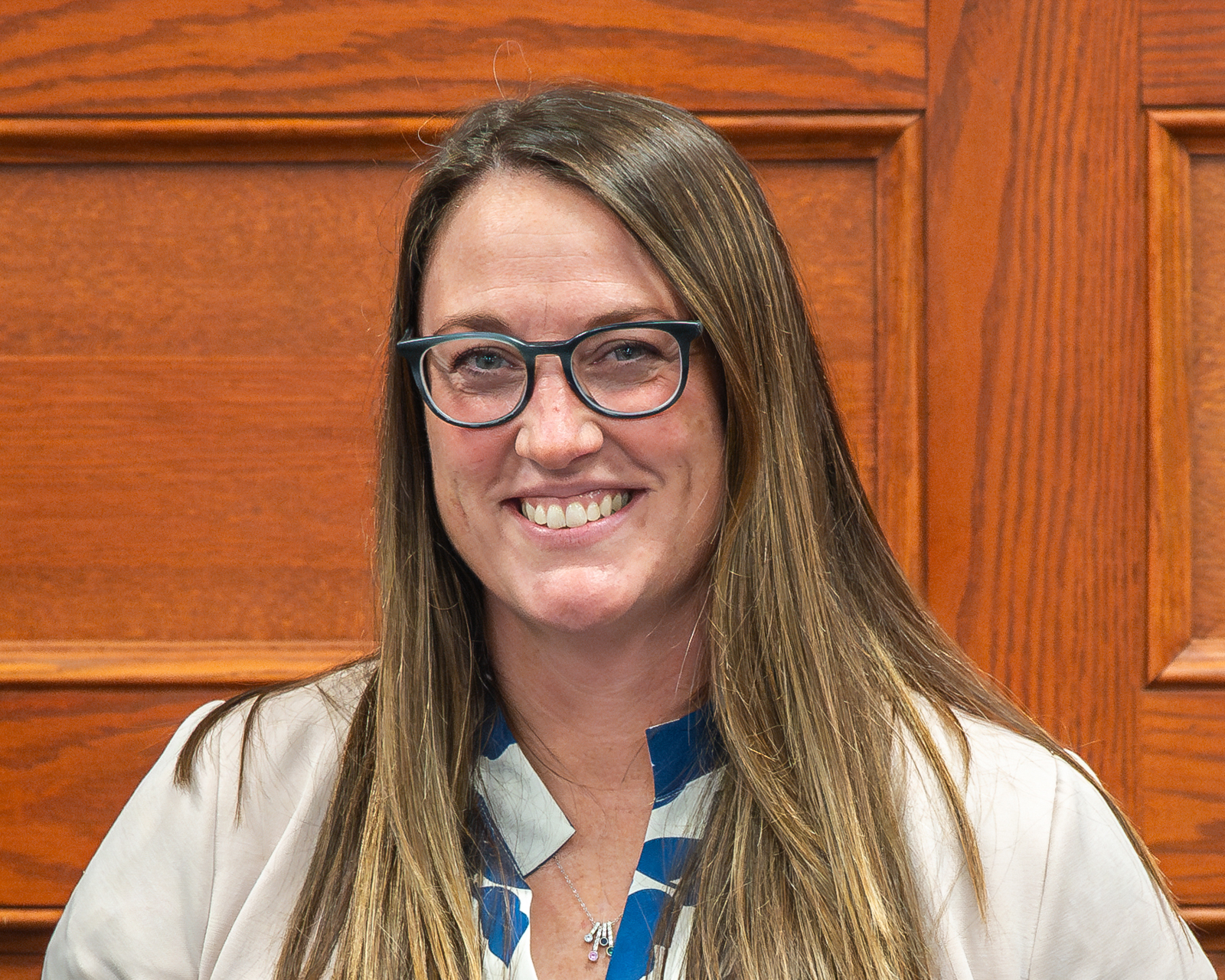
Heather Bailey, associate professor of psychological sciences in the College of Arts and Sciences, is a leader in understanding how prior knowledge influences memory, particularly in relation to aging and Alzheimer's disease.
Her National Institutes of Health, or NIH,-funded research provides critical insights into event memory changes across different life stages. As the director of undergraduate studies in her department, Bailey has significantly enhanced curriculum development and student success.
Her outreach to the broader community, including her co-development of the Neuroscience for Kids program, ensures that her research has a lasting impact outside the academic sphere.
David Cook
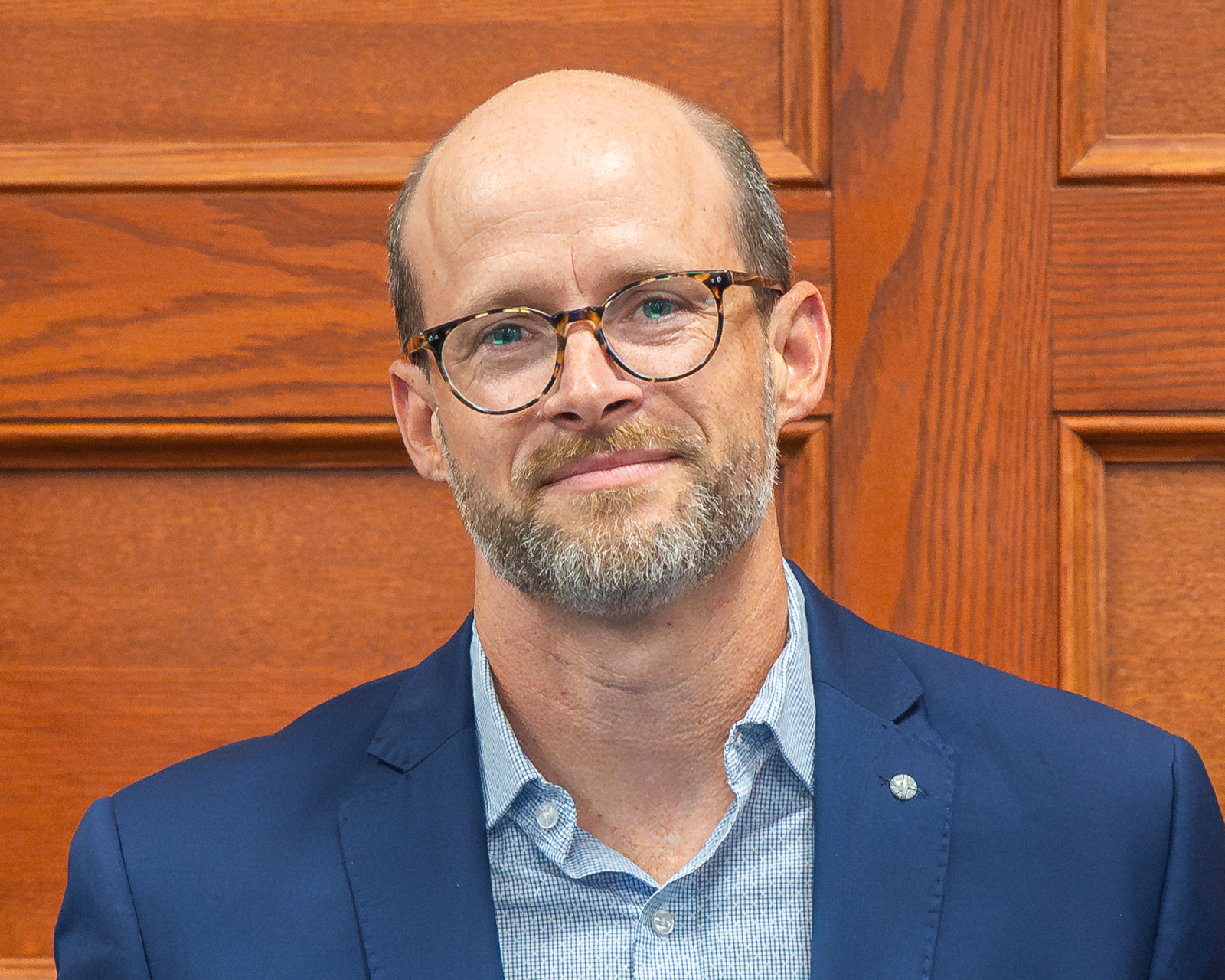
David Cook, associate professor of plant pathology, has become a recognized leader in the field of molecular plant-microbe interactions. With a strong background in bioinformatics, Cook's research focuses on improving disease management in crops, which is crucial for ensuring food security.
His work, which has garnered more than $5 million in research funding, integrates molecular biology with cutting-edge computational tools. In addition to his research, Cook's commitment to student mentoring and his active role in professional service — having served on grant panels and reviewed for leading journals — make him a respected figure in the academic community.
His dedication to agriculture and plant health continues to shape the future of crop protection and management.
Steven Copp
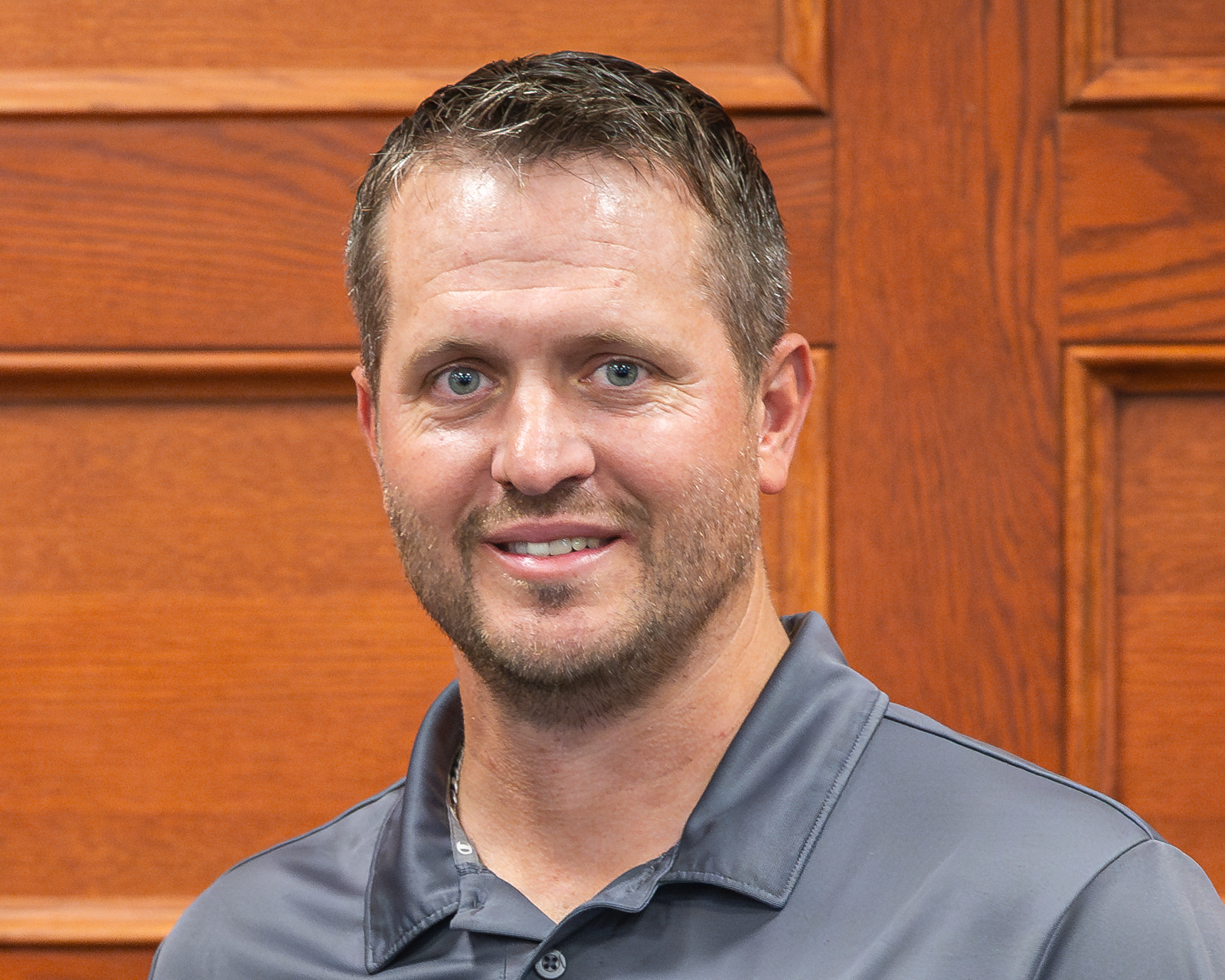
Steven Copp, associate professor of kinesiology, has made remarkable strides in both research and teaching. His research focuses on understanding the physiological responses to exercise and physical activity, with an emphasis on improving health outcomes.
Copp's success in securing NIH funding, including two R01 awards, reflects the national recognition of his research. He is a committed educator, having earned teaching awards and developed courses that engage his students. Copp serves on review panels for the NIH and is an active contributor to K-State's institutional efforts to retain and support top-tier faculty.
His work has had a profound impact on the K-State community and the broader field of kinesiology.
Romulo Lollato
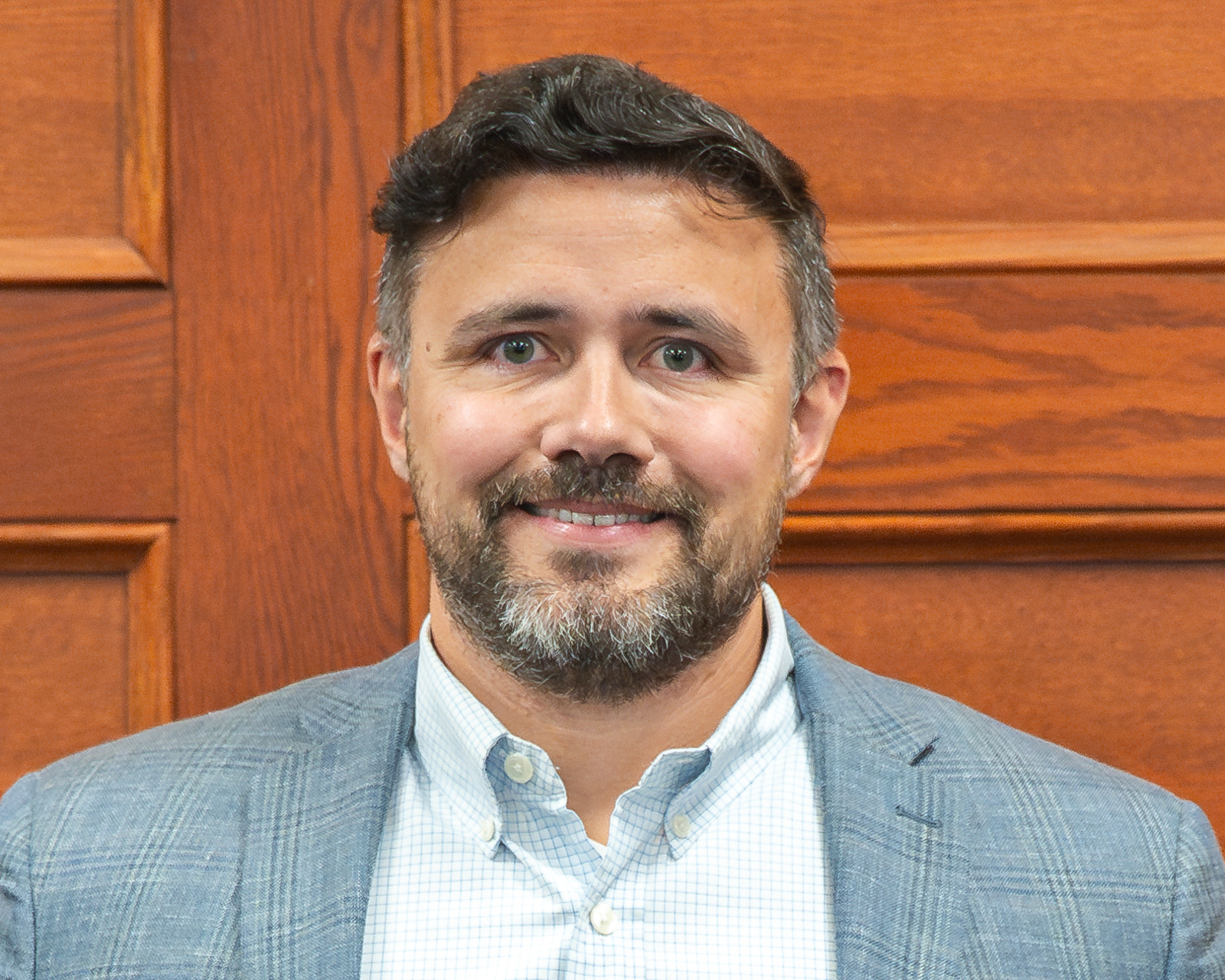
Romulo Lollato is an associate professor of agronomy and an extension specialist who has brought tremendous value to the wheat industry through his research and extension programs.
His innovative approaches to wheat production have benefited Kansas wheat producers, leading to an estimated $18.2 million in economic impact over the last nine years. Lollato's leadership is seen in the classroom as he mentors graduate students and builds strong relationships with producers, milling companies and the Kansas Wheat Commission.
Lollato's dedication to sustainable farming practices and his ability to secure research funding, including a $950,000 grant for wheat research, demonstrates his role as a driving force in advancing agricultural practices in Kansas and beyond.
Hongyu Wu
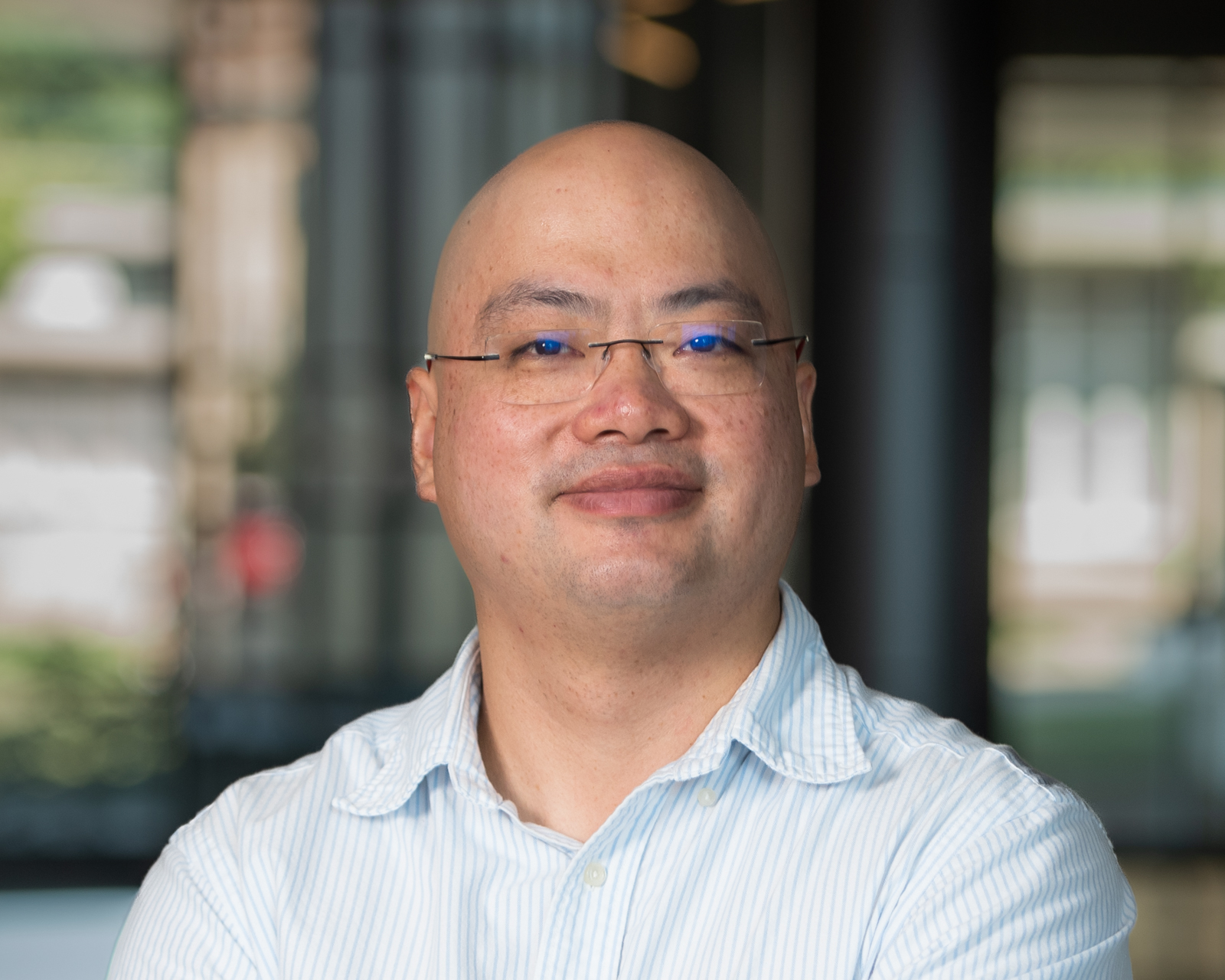
Hongyu Wu, associate professor of electrical and computer engineering, is at the forefront of power and energy systems research.
His work, which includes developing renewable energy solutions and optimizing power grid systems, has garnered more than $3 million in research funding. As an NSF CAREER Award recipient, Wu is recognized for his research excellence and his commitment to educating the next generation of engineers.
Wu's teaching and mentorship, along with his service to the academic community through peer reviewing and organizing symposiums, showcases his role as both a researcher and educator. Wu's contributions continue to shape the future of energy system around the world.
Ignacio Ciampitti
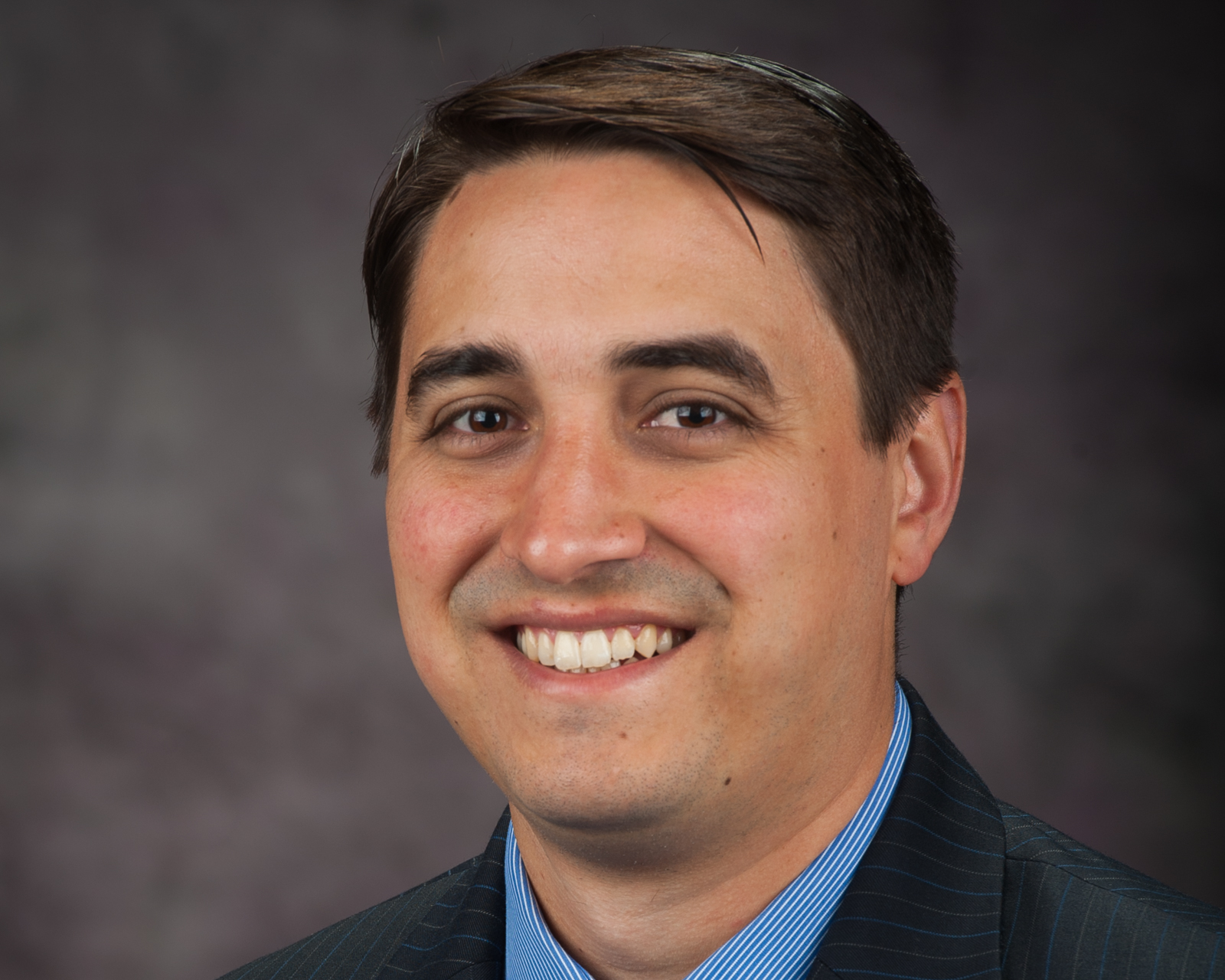
Ignacio Ciampitti, professor of agronomy, is renowned for his groundbreaking work in crop physiology and production systems.
His research on nitrogen dynamics and crop growth modeling has had a transformative impact on farming practices, helping to optimize crop yields while minimizing environmental impacts. With more than 100 peer-reviewed publications and more than $25 million in research funding, Ciampitti is a leader in sustainable agriculture.
His work not only advances the scientific understanding of crop production but also plays a key role in educating the next generation of agronomists. Ciampitti's mentorship has influenced the careers of many graduate students, and his extensive outreach efforts have led to collaborations with farmers and industry professionals worldwide.
Waithaka Mwangi
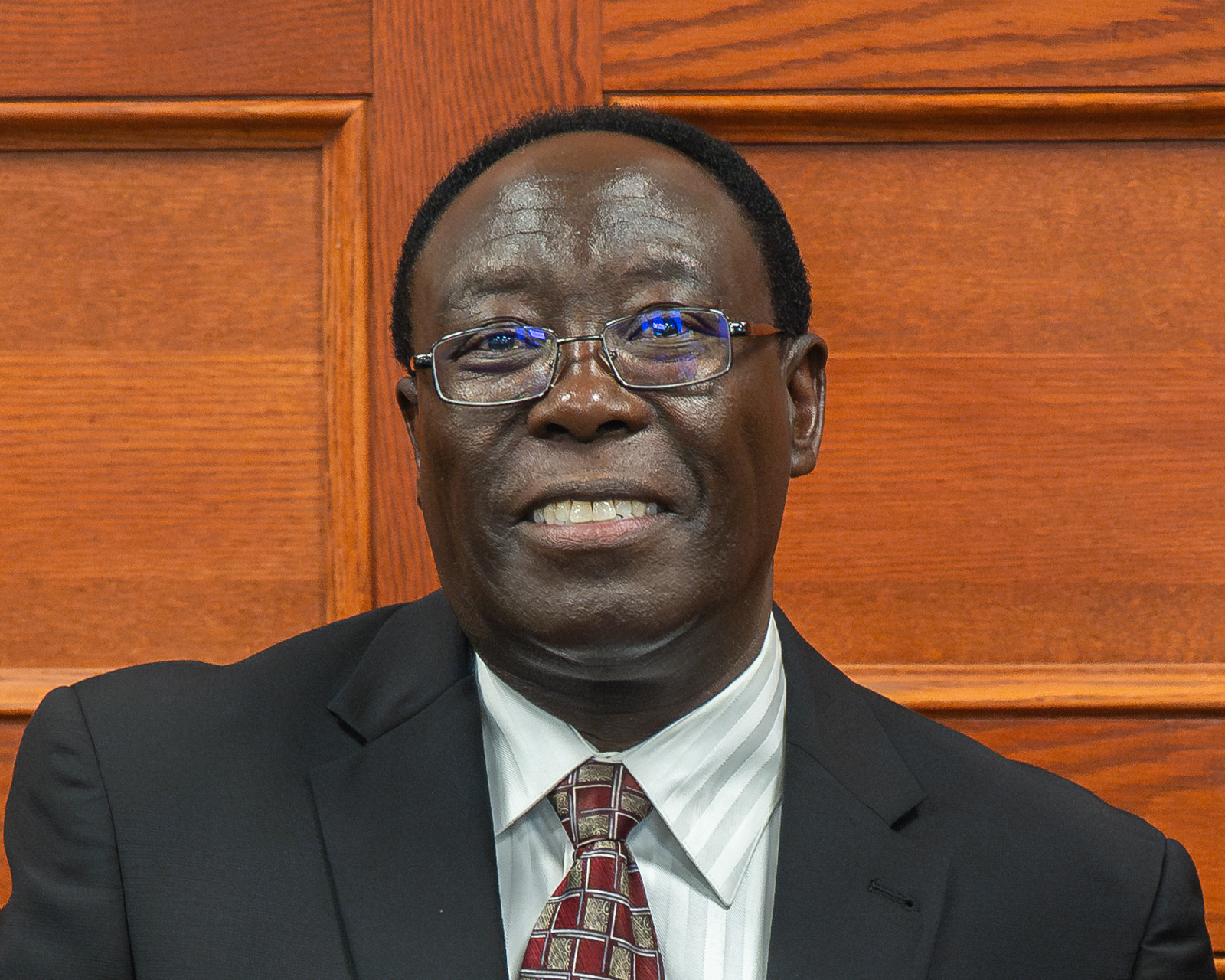
Waithaka Mwangi, professor of immunology in the department of diagnostic medicine and pathobiology, is making strides in vaccine research with a focus on livestock diseases that also have implications for human health.
His research on vaccines for African swine fever, bovine virus diarrhea and other infectious diseases has the potential to revolutionize both veterinary and human medicine. With more than $30 million in funding and more than 50 publications, Mwangi is a leading expert in transboundary diseases and zoonotics. He has also been an influential educator, teaching immunology to more than 500 students and mentoring numerous postdoctoral fellows.
Mwangi's work is critical in improving global health outcomes, bridging the gap between animal and human medicine.
Ajay Sharda
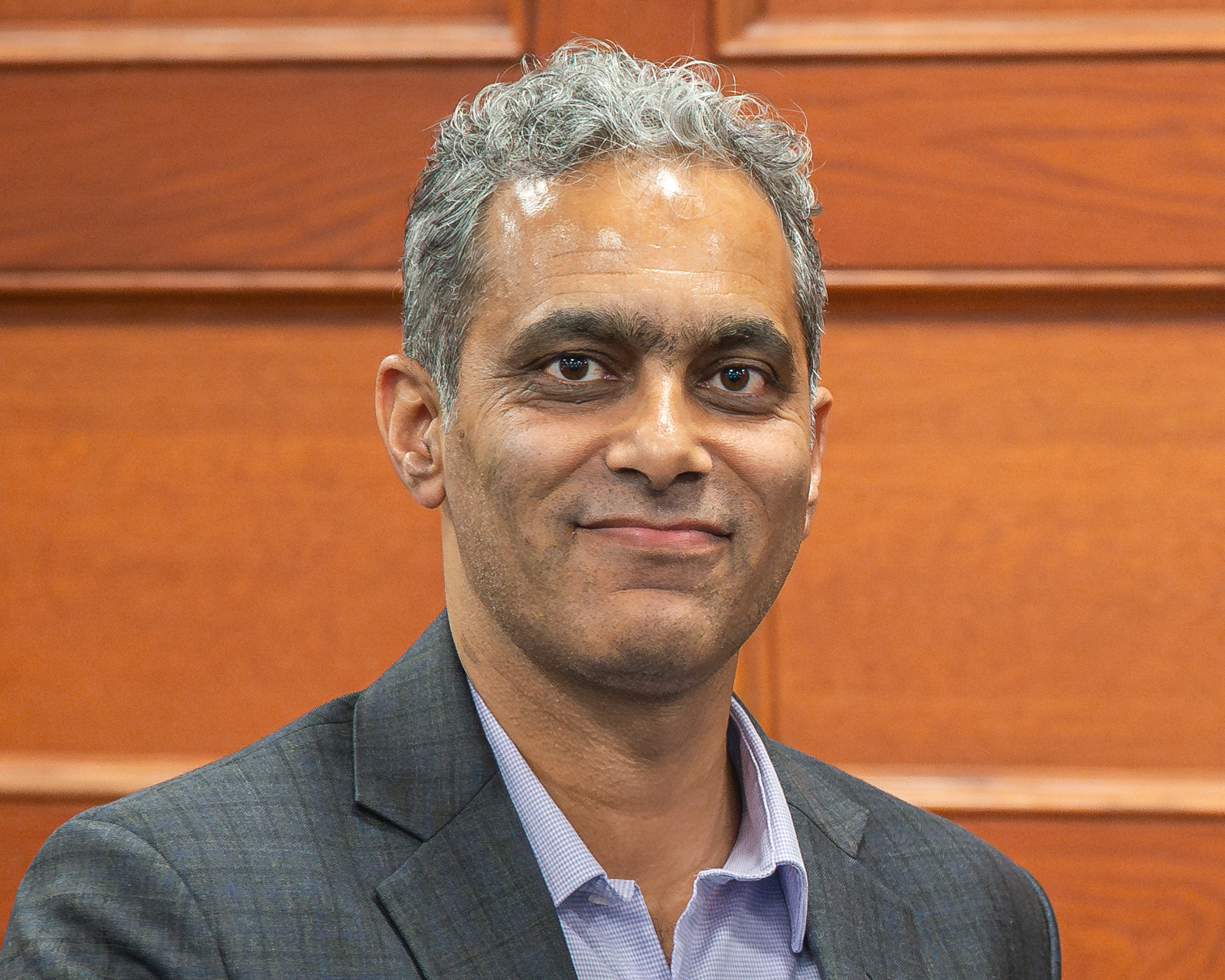
Ajay Sharda, professor of biological and agricultural engineering, is pioneering research in precision agriculture, using machine learning and sensors to improve crop management.
His innovative work in agricultural machinery and digital agriculture has the potential to revolutionize farming practices. Sharda has secured more than $17 million in funding and is a respected figure in the field of agricultural engineering.
As the leader of K-State's Institute of Digital Agriculture and Advanced Analytics, he is shaping the future of agriculture through technology. His mentorship has been instrumental in the success of numerous graduate students, many of whom have gone on to make significant contributions in academia and industry.
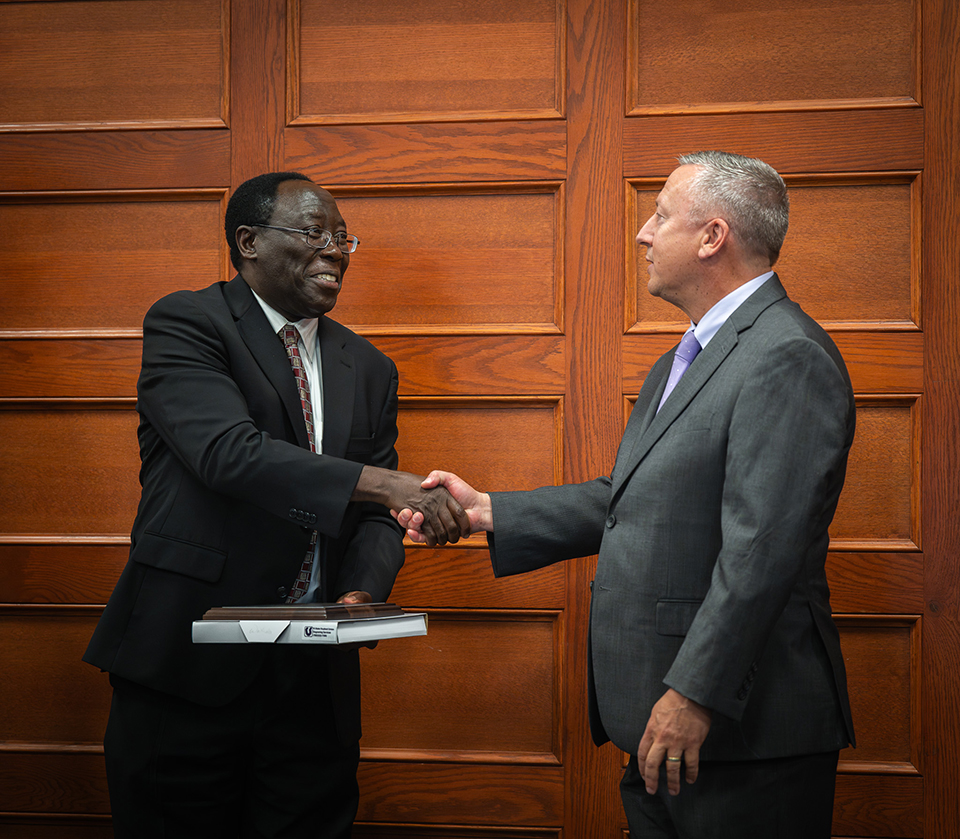
A vision for academic excellence
The inaugural cohort of University Outstanding Scholars exemplifies K-State's commitment to academic innovation and leadership.
These remarkable faculty members are not just researchers, but dedicated mentors, educators and community leaders who are actively shaping the future of their disciplines.
As K-State continues to invest in its faculty and cultivate an inclusive academic environment, these scholars stand as powerful ambassadors of the university’s vision for transformative education and research.
